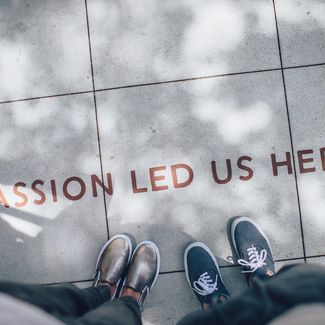
Ian Schneider
The Address: When it comes to offices the Word for 2021 is Hybrid
Physical office space vs remote working: businesses are still figuring out that balance. But it's definitely not time to burn down the offices yet
It’s a week that’s been battered by rain and thunder. Fortunately, for most of us the offices are not yet fully open and we can continue to slouch on our sofas in our spring loungewear, eating last night’s leftovers for breakfast while finishing our deadliness. All this while longing for that hum and thrum of office, the dread and triumphs during meetings, the camaraderie, the serendipitous moments.
But what does the post-pandemic era of the office look like? We all know it is going to be hybrid. Definitely the word for 2021. Hybrid.
It was the word that came up repeatedly in a recent Advertising Week debate, presented by WACL that I moderated. The results were surprising - 60 percent agreed with the proposition ‘The Era of the Office is Over’ (24 percent disagreed and 16 percent were neutral).
Dara Nasr, Twitter UK managing director, and Dominic Carter, News UK group chief commercial officer - who both spoke for the proposition - will contend that it was the strength of their arguments that won the debate. But the opposing arguments from Sue Frogley, Publicis Media CEO, and Jane Wolfson, Hearst UK chief commercial officer, were no less fierce.
In fact what both parties said was not wildly different, because this cannot be a binary debate. Hybrid working is so much more than a choice between home and office. For Dara, the pre-pandemic office was a rigid world where the bosses controlled their employees and expected them to be in an office five days a week. "The building isn’t the magic of our workplaces, the people are the magic. You can work with people whether it be in an office, in someone else’s office, somewhere else, without it being rigid without fixed times without it impacting your life negatively," he added.
Dom agreed that the "old office is dead" but "long live the new era of the workplace where people and creativity are put first", a place that needs to be reimagined with “a new purpose, a new convening power".
A place - and that is at the heart of the matter. In this most creative of industries, the workplace has always been a magical space, at least for the best companies over the years - 80 Charlotte Street for Saatchi & Saatchi, 151 Marylebone Road for AMV, Kingly Street for BBH, the Tea Building for Mother, and even the brutal converted warehouse in Paddington that gave the nascent Zenith Media its grit. The office space has always been an active participant in the success of many agencies.
As Jane argued during the debate: "As an industry we all have a responsibility to drive a more diverse workforce and how are we going to attract people who may never have worked in a media environment and expect them to progress if we can’t bring them into our office space to meet in real life and give them the chance to thrive."
The opposition might have lost the debate, but my vote goes to Sue who said that without the office we can stay connected albeit virtually; but without the office it’s harder to engage, nurture and grow the next generation of talent.
In her words: "Don’t believe the hype. The office is here to stay."
But businesses will now need to work harder (as suggested by Dom & Dara) to reinvent the idea of the office as a space for community, collaboration and creativity, the place where the magic happens, while the quiet pursuits of concentrated thinking or monotonous process-churning are efficiently dispensed with via home working.
And for all those business leaders eager to reinforce or reignite a culture of happy shared purpose and heartfelt pride across the organisation, the hybrid office appears to be the right solution.



